The Grand Bargain Bimonthly Updates - June 2024
Read the latest news from the Grand Bargain Ambassadors, Facilitation Group and Signatories.
View this email in your browser
The Grand Bargain Bimonthly Updates
Latest news from the Grand Bargain | June 2024
Dear Grand Bargain Signatories,
Welcome to the June edition of our bi-monthly newsletter!
This issue features the latest updates, including the Strategic Dialogue on Innovative Financing led by Ambassador Koehler; Ambassador Bessler’s visit to Türkiye to discuss localisation with different stakeholders; a discussion, convened by the UK, Switzerland and Denmark on the role of donors in promoting a shift to inclusive and locally led action within humanitarian pooled funds; and more.
Wishing you pleasant reading.
The Grand Bargain Secretariat
Accelerating implementation toward sector-wide transformation by 2026
How can we collectively accelerate the implementation of our joint Grand Bargain (GB) commitments? How can we regain more momentum? The Grand Bargain Ambassadors Jemilah Mahmood and Michael Koehler discussed these questions with the Facilitation Group (FG) Sherpas on 12 June. The Ambassadors urged to increase the level of accountability for implementing current agreements, including Caucus outcomes, while reaffirming the equal importance of all commitments under the Grand Bargain 3.0. They also stressed the need for greater peer-to-peer learning, engaging politically beyond the humanitarian sphere, and strengthening the incentive structures that would enable transformative change.
The Ambassadors also proposed a set of levers for transformation around localisation, accountability to affected populations, and quality funding to move from incremental progress to transformative impact within the next two years. During this meeting, an initiative was adopted to engage with Signatories and beyond to accelerate progress on the Grand Bargain objectives and prepare for the Annual Meeting. As part of it, the FG will convene constituency calls ahead of the Annual Meeting to discuss these levers for transformation. The outcome of these consultations will inform the development of a roadmap towards 2026.
>> Click here to read the summary note
Following this meeting, the Ambassadors invited all Grand Bargain Signatories to a dialogue to discuss the Signatories' readiness to accelerate the implementation of the GB commitments, including scaling up capacity to do so. This virtual dialogue took place on 20 June 2024.
The participants agreed with the Ambassadors on the importance to achieve concrete results by 2026 in key areas such as localisation, accountability for affected population, and quality funding.
Once again, the Signatories highlighted the GB as a key platform for this global collaboration. Some pointed out that many of the GB ideas have by now been internalised within internal policies, becoming in many ways the ‘way of working’. Yet, others raised concerns regarding trends that seem to go against the spirit of the GB commitments (e.g. increased funding conditionality, tighter earmarking, more detailed reporting requirements).
>> Click here to read the summary note
Strategic Dialogue on Innovative Financing: Seeking possibilities for greater scale

Scaling-up Innovative Financing is one of the key focus areas of the GB 3.0 framework. A lot of work has previously been done as part of the Humanitarian and Resilience Investment (HRI) Initiative of the World Economic Forum.
On 24 June, Ambassador Michael Koehler, together with ICRC and the World Economic Forum invited stakeholders with clear experience in innovative financing mechanisms and tools to identify concrete actions for scaling up innovative financing and explore how the Grand Bargain could contribute to this.
"We must focus on innovative financing concrete solutions. It's an uphill fight to convince stakeholders, but it's essential" - Ambassador M. Koehler
The meeting provided an opportunity for participants to discuss successful models and collectively identify barriers and enablers to scaling innovative financing in crisis responses. A detailed summary note will be shared in the coming weeks.
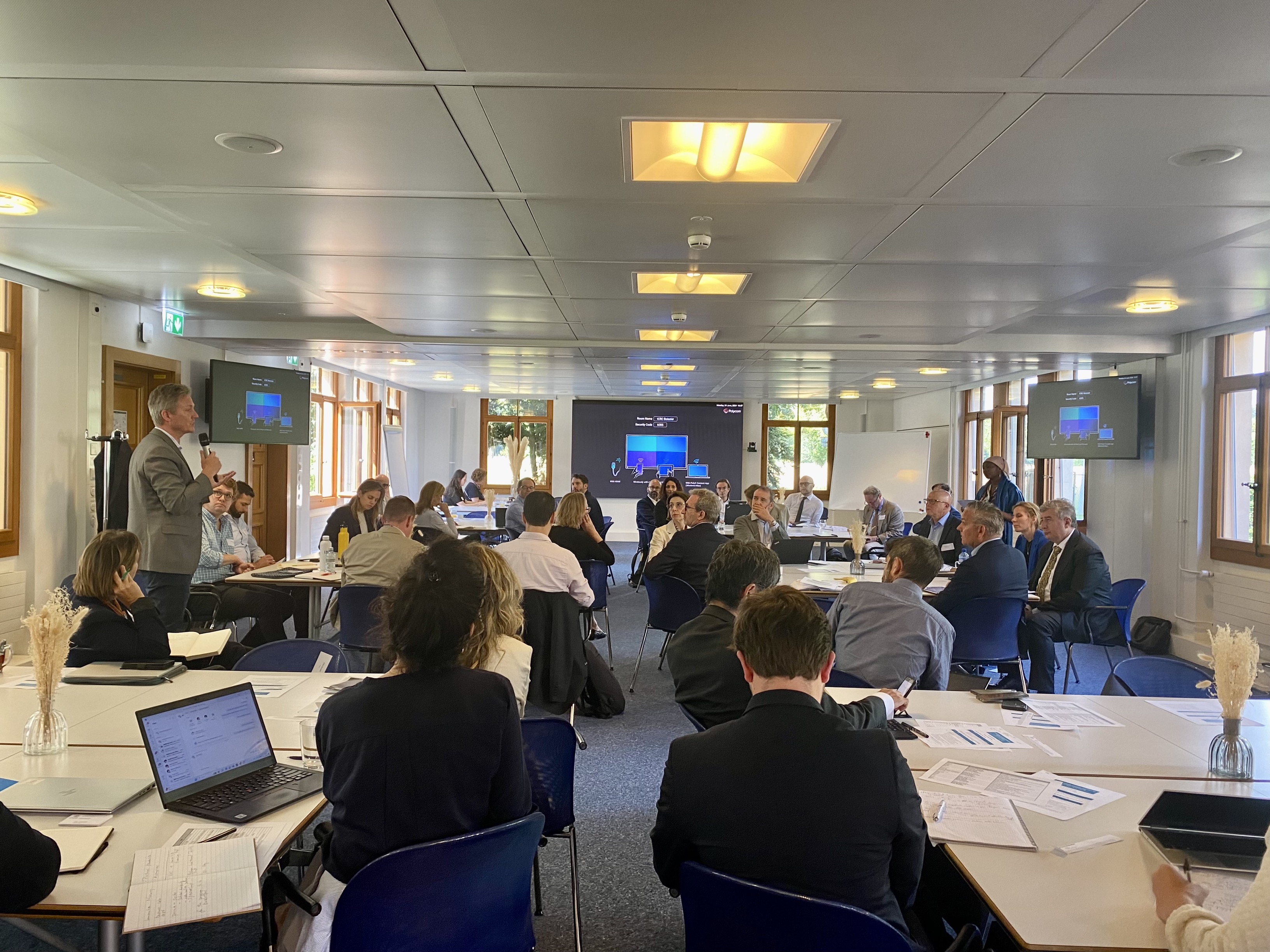
Discussing Localisation in Türkiye and engaging with National Reference Groups
To advocate for progress on localisation, including more equal partnerships, Ambassador Bessler met with different GB Stakeholders in Türkiye, including with local organisations and networks, INGOs, donors, the Turkish Red Crescent, UN organisations, the Resident Coordinator, and national authorities. His conversations focused on learning about local and national actors' priorities as well as on helping to advance localisation in the Türkiye context.
At the same time, the Grand Bargain Secretariat met in Ankara with the leads of the GB National Reference Groups from Lebanon, Türkiye, and Syria as well as with the NEAR to discuss how to meaningfully strengthen the concept of NRGs as well as the involvement of local actors at the GB Annual Meeting.
These dialogues aimed to continue strengthening the integration of local perspectives into the Grand Bargain 3.0.
Advancing accountability to affected people
To push for more meaningful progress on the Accountability to Affected People objectives of the Grand Bargain, Ambassador Jemilah Mahmood met with several partners in Geneva on 21 May 2024. She met with the co-chairs of the IASC Task Force 2 (WFP and the CHS Alliance) and with ICVA and some of ICVA’s members. The discussions focused on building a strong common agenda between IASC and GB, strengthening efforts on policy-driven initiatives, linking AAP with localisation, and improving donor engagement.
The participants shared their recommendations with Ambassador Mahmood with the aim to address remaining challenges and achieve the participation revolution. They stressed the importance of locally led initiatives, collective learning at the country level, and developing a robust policy reform agenda.
Grand Bargain Ambassadors in Action
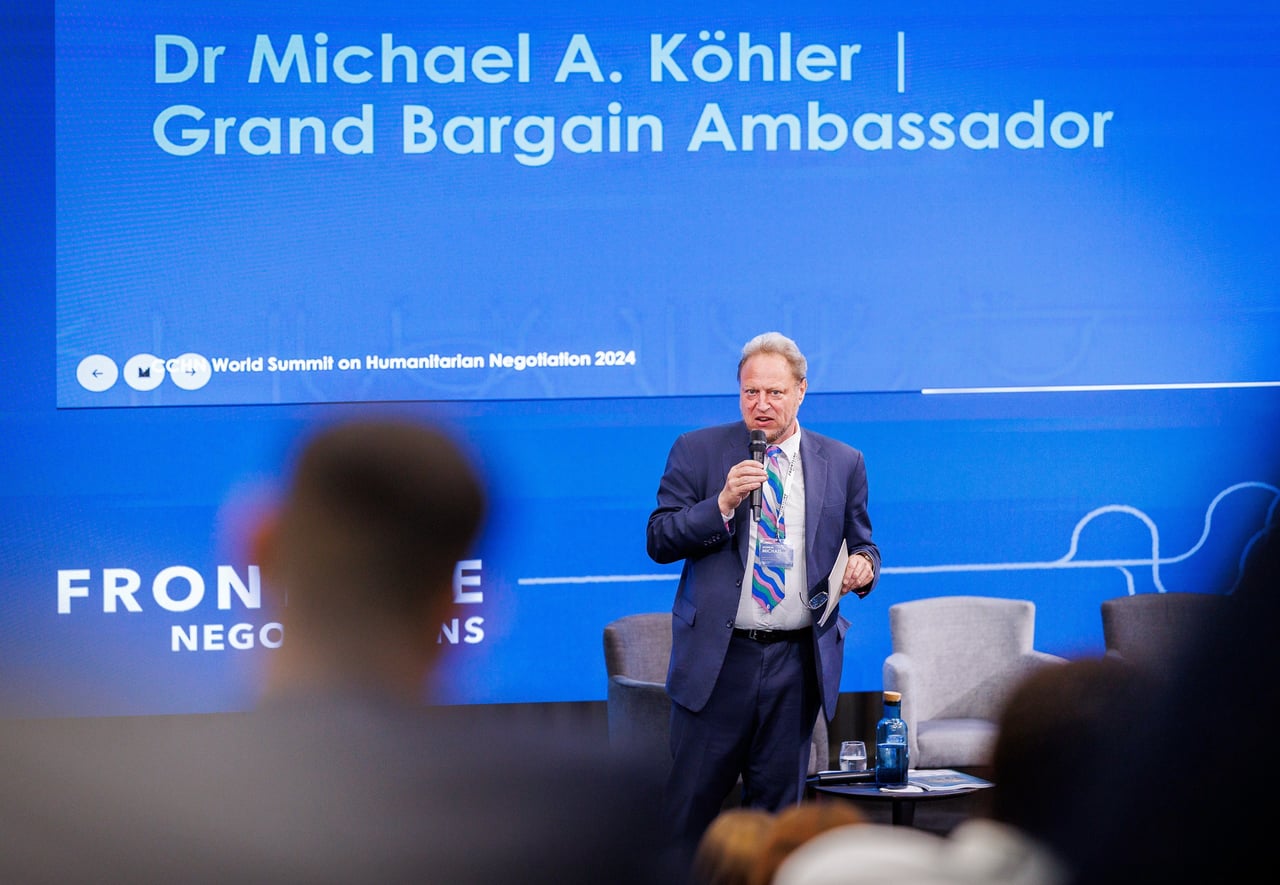
Ambassador Koehler participated in the World Summit of the Centre of Competence on Humanitarian Negotiation in Geneva. The discussion centered on grassroots leadership and local voices in crisis negotiation, with the presence of humanitarians from Ukraine, Pakistan, Syria, and Poland.
Latest from the Signatories
Join the Community Meeting: Outcomes of CVA Policy Dialogue organised by USAID/BHA and the CALP Network on 16 July 2024, 13:00-14:00 UTC
Last year, USAID/BHA and the CALP Network initiated a ‘Policy Dialogue’ process focused on the changes needed to make a break-through on locally led and people-centred Cash and Voucher Assistance (CVA). This process involved consultations with stakeholders at the country, regional, and global levels to gather diverse insights.
The key findings from these consultations have been compiled into a ‘Draft Outcomes Document,’ which will be presented during this meeting. This gathering aims to build collective awareness of the community's perspectives on locally-led CVA, encourage reflection and feedback, and identify areas of consensus and divergence. The feedback will be used to refine the outcomes document.
Click here to register
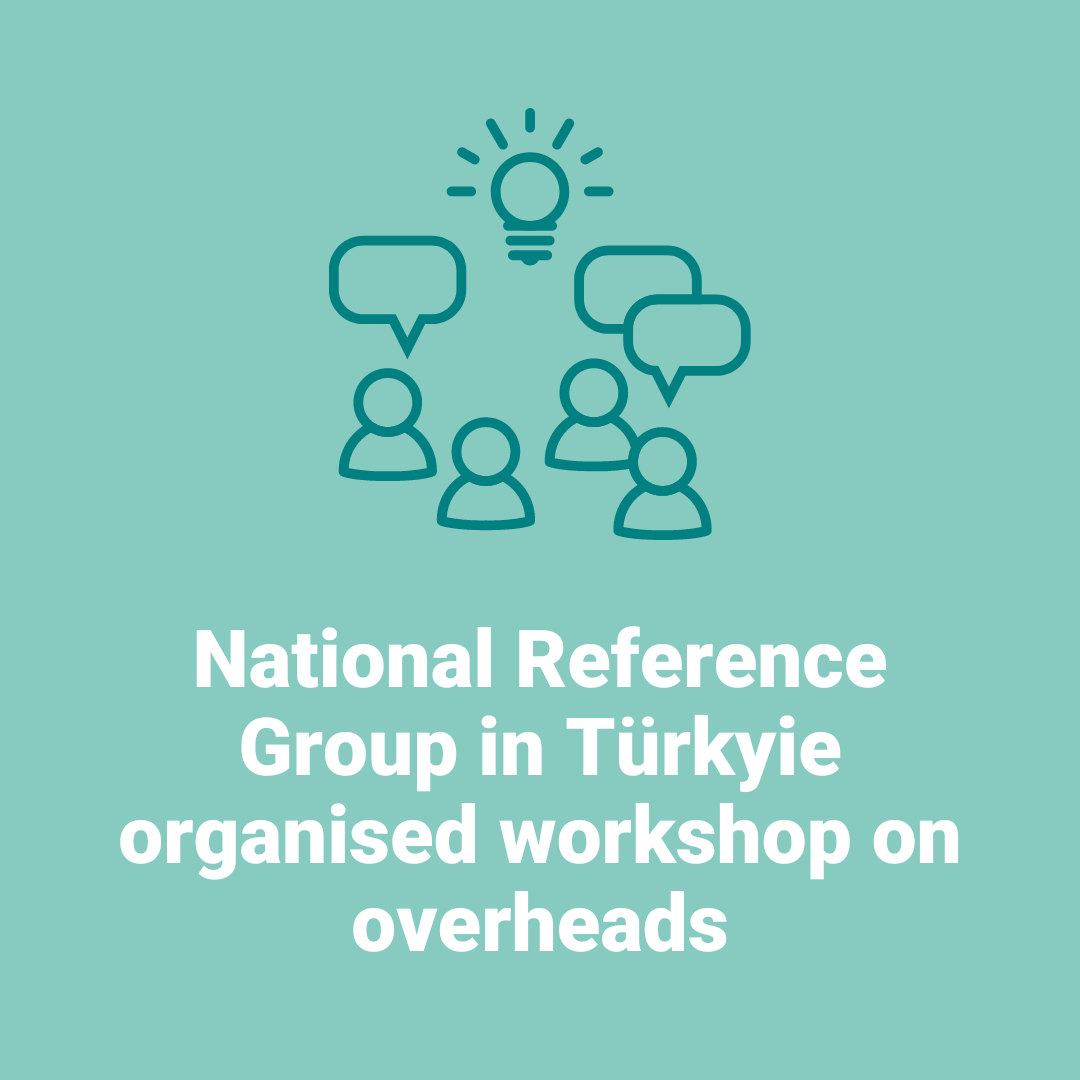
GB National Reference Group (NRG) in Türkyie discussed overheads/ICR for local and national NGOs
On behalf of the National Reference Group (NRG) in Türkiye, the Localisation Advocacy Group (LAG) and the Turkish Refugee Council (TMK) organized a workshop on overheads/indirect cost recovery for local and national actors. The workshop took place in Ankara on 26 June 2024. The workshop was an opportunity to discuss and learn from global research, the IASC guideline, current policies and practises in Türkiye, and Grand Bargain ambitions.
The participants collected challenges and good practices which are now being consolidated to identify potential next steps. This multi-stakeholder workshop was attended by local and national organisations, INGOs, UN agencies, donors, public institutions, the Grand Bargain Secretariat as well as NEAR.
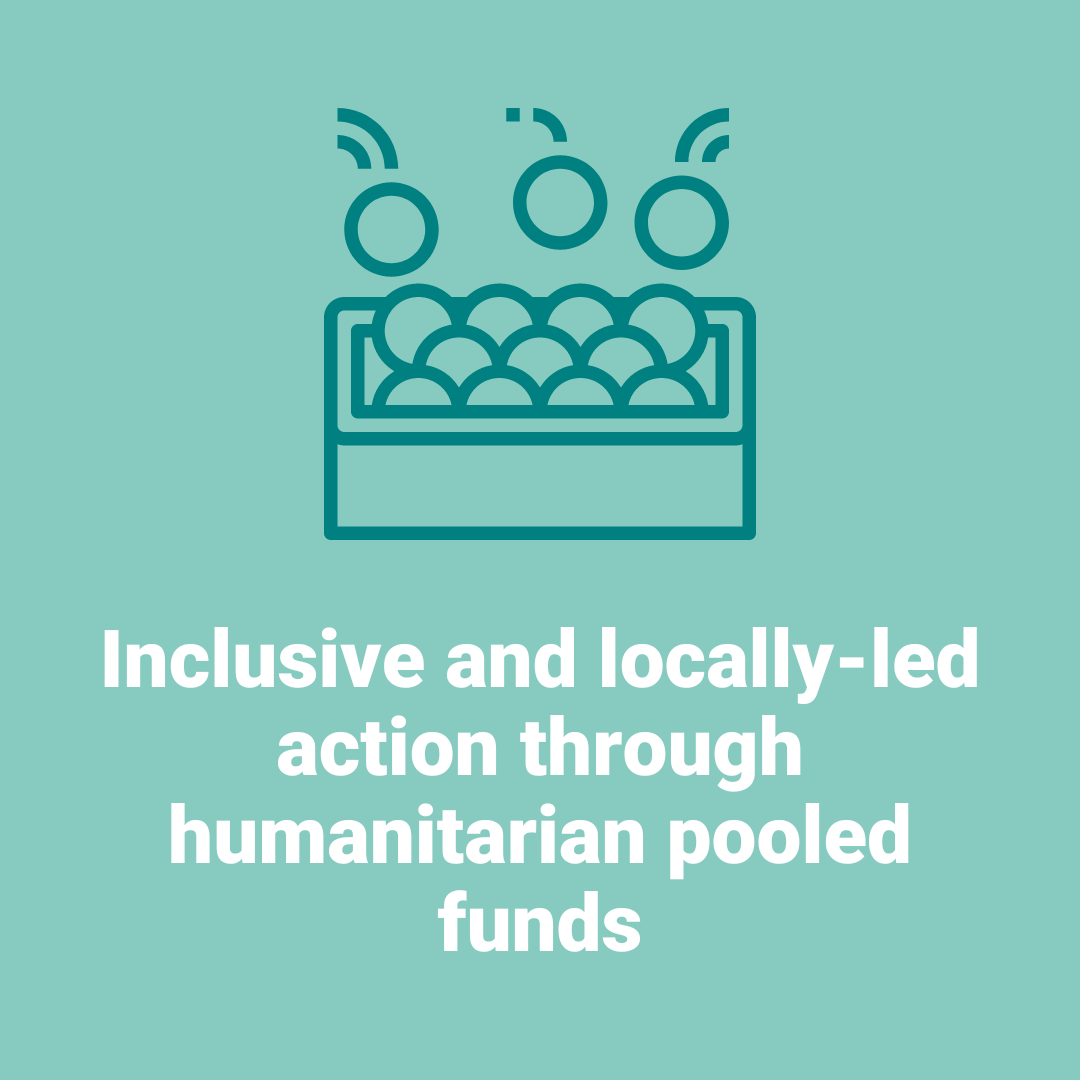
Harnessing the role of donors to promote more inclusive and locally led action through humanitarian pooled funds
The UK, Switzerland and the Danish Ministry of Foreign Affairs convened humanitarian fund managers, fund users and humanitarian donors in a virtual discussion on 13 May 2024, to discuss the role of donors in promoting a shift to inclusive and locally led action within humanitarian pooled funds.
The participants discussed the range of innovative practices tested by humanitarian pooled funds, reflecting on the role of donors and identifying 12 areas where donors can positively support the shift to locally led action.
Click here to read the summary note
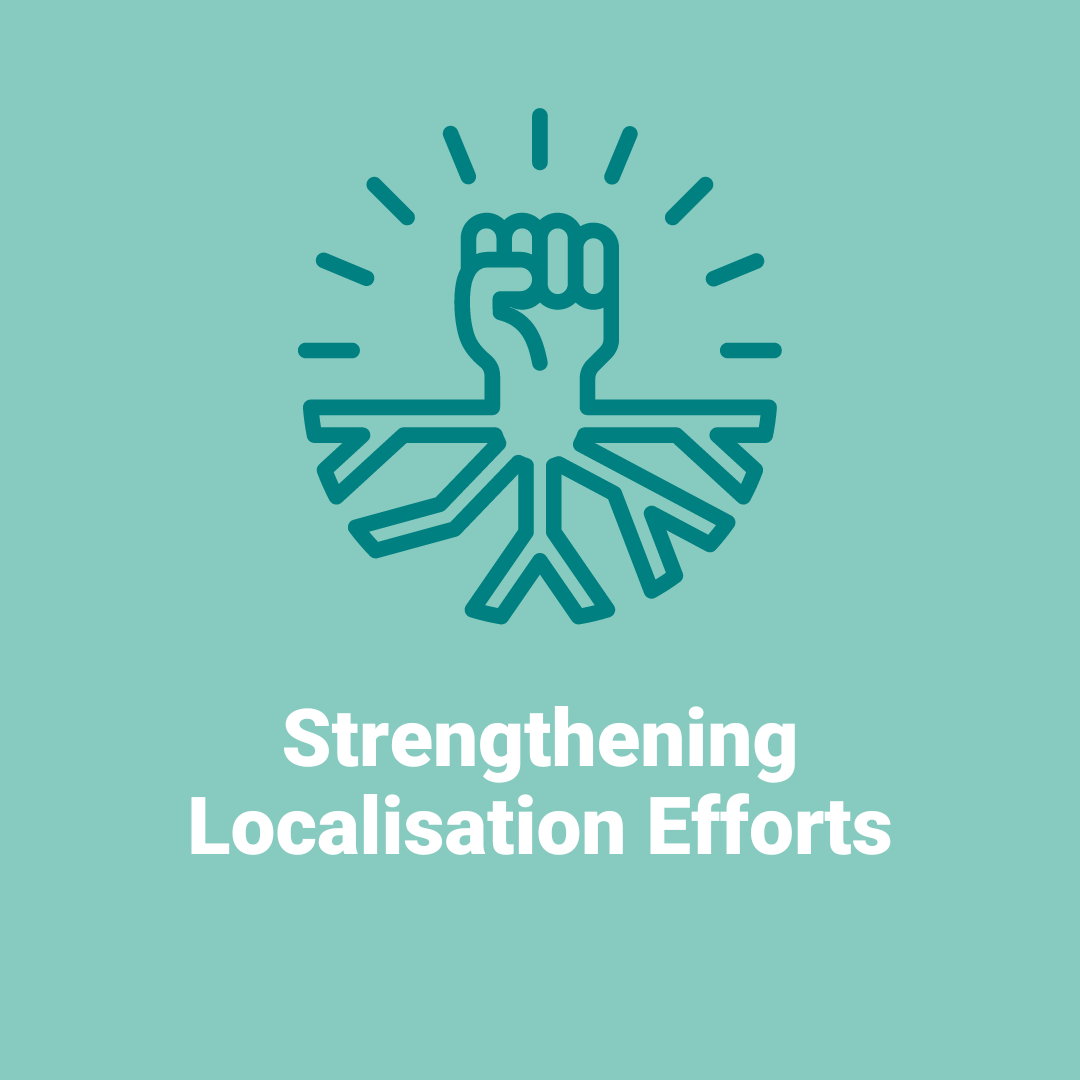
Strengthening localisation efforts: Myanmar CSOs' workshop in Bangkok
In the third week of June 2024, Myanmar Civil Society Organisations organised a Grand Bargain/localisation advocacy workshop in Bangkok. The aim was to formulate and sharpen the local-led localisation calls to the Grand Bargain constituencies, including donors, UN, INGO. CSOs urged that the localisation commitments needed to be grounded in the realities of each context. The recommendations from the workshop will serve as the basis for Myanmar CSO's future advocacy in the leadup to the 10th anniversary of the Grand Bargain in 2026. The Grand Bargain Secretariat and the NEAR Sherpa joined the closing session of the workshop remotely to reflect on the recommendations.
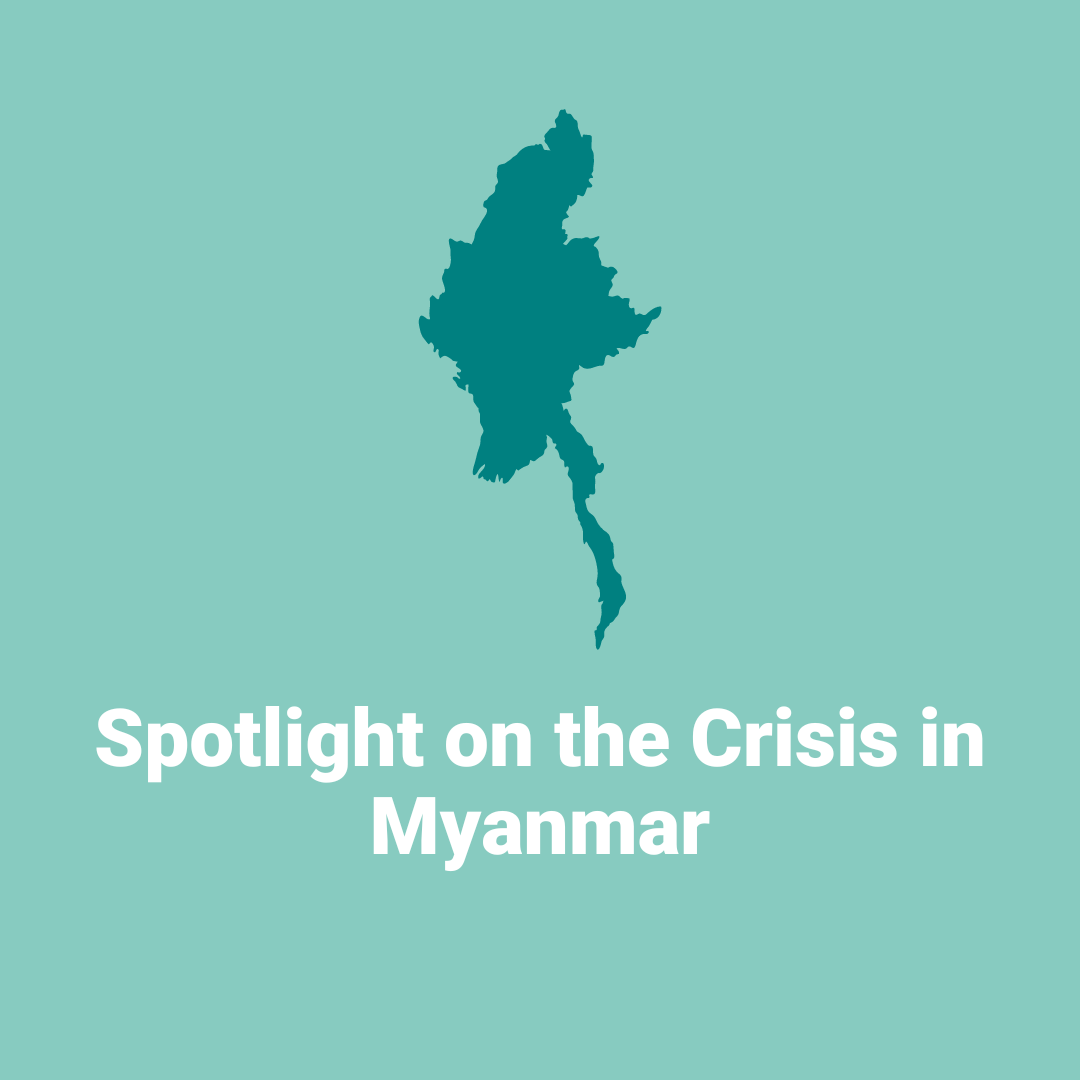
Spotlight on the Crisis in Myanmar
On 10 June 2024, Switzerland and the UK hosted the "Spotlight on the Crisis in Myanmar" donor event in Geneva to address the severe humanitarian crisis following the military coup. The event aimed to raise awareness, advocate for increased funding, and discuss strategic responses with key international actors, highlighting the crucial role of local NGOs and CSOs.
The participants emphasised the importance of supporting local and national actors, who are vital in reaching affected populations despite facing significant risks and funding hurdles. It also raised the need for more risk sharing and more flexibility for local actors. There was a call for more flexible donor criteria, better quality funding mechanisms, and less stringent reporting requirements to empower these local actors.
The Grand Bargain Secretariat is supported by EU/DG ECHO and hosted by the Norwegian Refugee Council/NORCAP.
Copyright © 2024 The Grand Bargain Secretariat, All rights reserved.
You received this email as a Grand Bargain Signatory.

